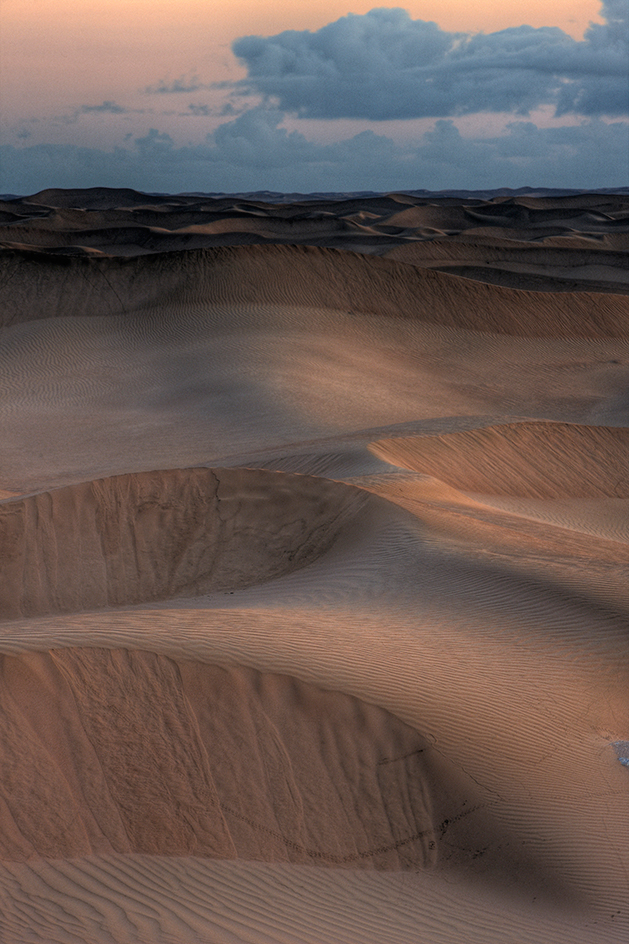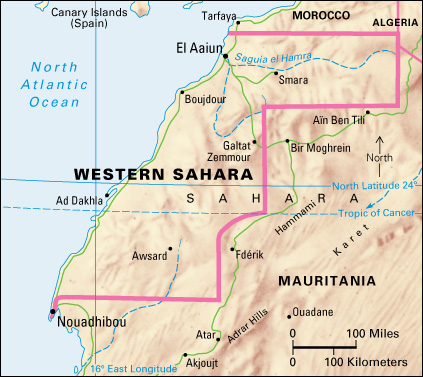Western Sahara, formerly Spanish Sahara, is an area on the northwest coast of Africa. It lies between Morocco, Algeria, Mauritania, and the Atlantic Ocean. The area belonged to Spain in the early 1500’s and again from 1860 to 1976. Today, Morocco claims it. But some people who live in Western Sahara oppose the claim.

About 650,000 people live in the area. Most are Arabs or Berbers. The majority are nomads who move about constantly, seeking water and grass for their herds of camels, goats, and sheep. Some people fish for a living along the coast of the Atlantic Ocean.
Western Sahara covers about 102,703 square miles (266,000 square kilometers). Most of it is barren, rocky desert that gets little rainfall. Vegetation is scanty except for patches of coarse grass and low bushes near the coast. But the land yields large quantities of valuable chemicals called phosphates, which are used as fertilizers and in the manufacture of detergents.
Spain claimed the area in 1509. Morocco ruled it from 1524 until Spain regained control in 1860. Spain made the area one of its provinces—called the Province of Spanish Sahara—in 1958.

In 1976, Spain ceded Spanish Sahara to Morocco and Mauritania. The area came to be called Western Sahara. Morocco claimed the northern part, and Mauritania claimed the southern part. Algeria and an organization of people of Western Sahara called the Polisario Front opposed these claims and demanded independence for the area. The Polisario Front formed a government-in-exile for a nation in Western Sahara that it called the Sahrawi Arab Democratic Republic (SADR).
Fighting broke out between Polisario Front troops and troops from Morocco and Mauritania. In 1979, Mauritania gave up its claim to Western Sahara and withdrew from the fighting. Morocco then claimed the part of Western Sahara that Mauritania had claimed. Fighting continued between the Polisario Front and Morocco. A United Nations-supervised cease-fire between Polisario Front forces and Moroccan forces was declared in late 1991. The cease-fire plan also called for a referendum (direct vote) to determine whether Western Sahara would become independent or part of Morocco. However, disagreements between Morocco and the Polisario Front over voter eligibility have repeatedly delayed the referendum.
See also African Union; Organization of African Unity.
